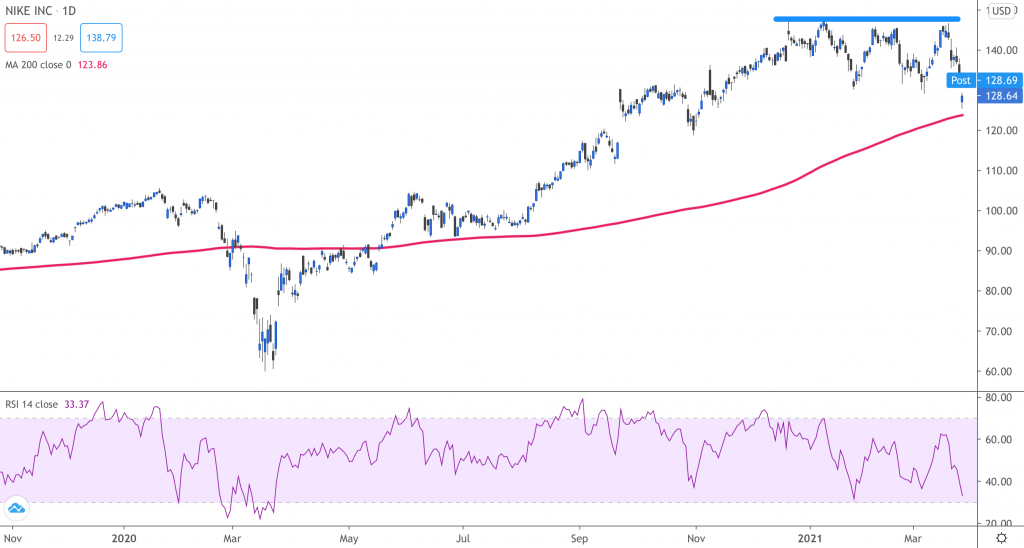Nike shares may be down over the last week, but the stock looks poised to surge far higher. Here’s why.
Nike (NYSE: NKE) shares are down 8% over the last week following a mixed earnings report last week, and social media backlash in China this week over the company’s past statement on forced labor in Xinjiang.
“We are concerned about reports of forced labor in, and connected to, the Xinjiang Uyghur Autonomous Region (XIAR),” Nike said in the statement in question. “Nike does not source products from the XUAR and we have confirmed with our contract suppliers that they are not using textiles or spun yarn from the region.”
Nike shares have been a big winner in the coronavirus pandemic era, gaining more than 110% since the March 2020 market bottom as consumers stocked up on comfy athletic gear.
But with the stock up 110% over the last year, Miller Tabak chief market strategist Matt Maley says the stock is currently at a “key technical juncture.”
“The stock is expensive on a P/E basis, price to earnings, and also price to sales, more importantly,” Maley said. “However, I’ve got to admit on a technical basis it does have some potential here.”
Looking at Nike’s chart, Maley noted that the stock has hit resistance at the $147 level four times in recent months.
“Even though the stock is not oversold, it’s kind of in a neutral area, maybe slightly above, but it’s not overbought and certainly not as overbought as it has been at recent highs in the last couple of years,” Maley continued. “So it’s kind of at a key technical juncture right now. A break above $147 and it’ll run, but wait, just wait for that.”
Nike shares closed at $128.64 on Thursday, or roughly down 12% from the $147 level.

Maley isn’t the only one who likes Nike shares. UBS analyst Jay Sole reiterated his Buy rating on the stock this week with a $183 price target – 42% higher than the price as of this writing.
Sole said that Nike remains his top pick for 2021 given its “exceptional growth outlook,” and argues that even with mixed earnings results from last week, the earnings per share beat the company reported—EPS of $0.90 versus $0.76 expected—were compelling.
The UBS analyst also noted that Nike’s EBIT—earnings before interest and taxes—margin was 60 basis points higher than any third-quarter EBIT margins in the past decade.
And while margins may not remain so robust, Sole argues that “the factors that drove Nike’s big third-quarter margin beat are structural and just starting to play out.”